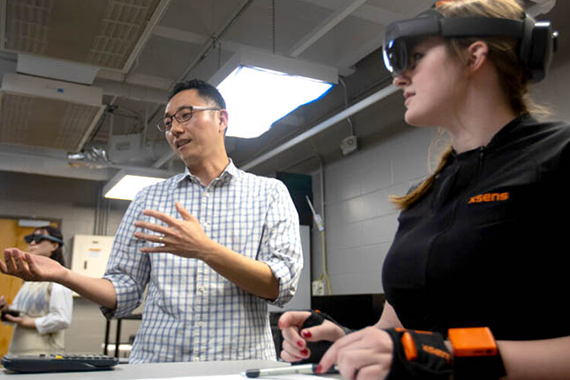
Study finds correlation between metacognition and effectiveness of virtual instructors in remote classes
Augmented and virtual reality are changing the way universities can offer remote and online courses. These technologies allow for course materials to be presented to students in a more engaging and interactive way. However, right now, there’s a disconnect between the “wow” factor and what students actually learn using these technologies.
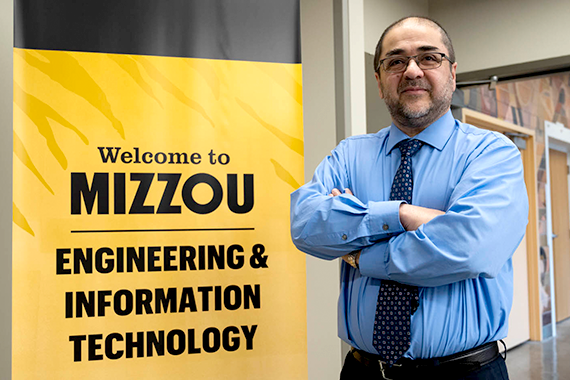
Salim named chair of Department of Engineering and Information Technology
Professor Hani Salim has been named chair of the Department of Engineering and Information Technology at Mizzou Engineering.
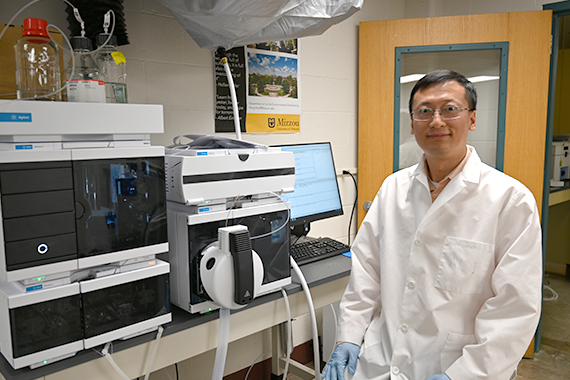
Engineering professor outlines challenges, strategies around ‘forever’ chemicals in Nature Water journal
Water treatment systems in the U.S. are more than a century old, allowing contaminants to pollute our drinking water and cause health problems. There are technologies that would help states and cities filter out these chemicals without having to replace entire treatment systems; however there’s no mandate for governments to install them. Short of that, there are non-technical solutions that could help reduce pollution levels. Civil and Environmental Engineering Associate Professor Feng “Frank” Xiao outlined these challenges and strategies in a paper published in a Nature journal, Nature Water. Xiao is specifically looking at ways to treat per- and polyfluoroalkyl substances (PFAS), or 'forever' chemicals, which are found in household and industrial products. These chemicals are ending up in our water and causing various medical conditions.
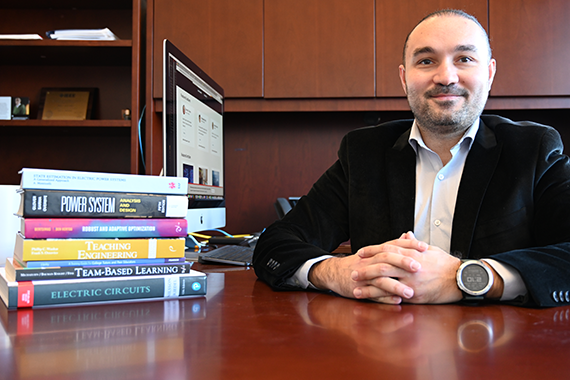
Korkali solving challenges around power grids as energy demands rise
From electric vehicles to electric heat pumps, Americans are plugging in more than ever. While that’s reducing emissions, it’s also creating increased demand on power grids — which are already more susceptible to blackouts as extreme weather becomes the norm. That’s where Mert Korkali comes in. Korkali is an assistant professor in electrical engineering and computer science, and he studies sophisticated approaches to upgrading and securing power grids.
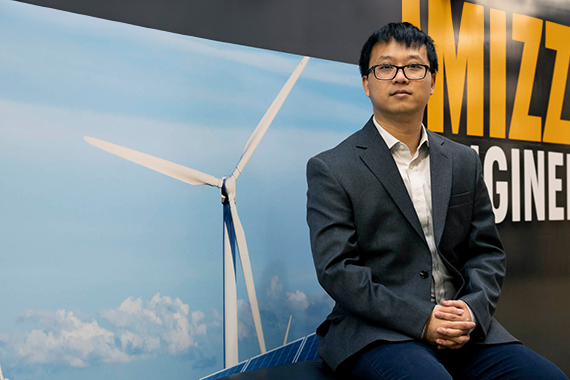
Huang excited to usher in new generation of power electronics, converters
As more homes, industries, and power grid systems utilize solar and other renewable energy, and more vehicle owners switch to electric vehicles (EVs), the need for power converters is on the rise. But right now, they’re still expensive and not as efficient and compact as they could be. Qingyun Huang is working to change that. An assistant professor in electrical engineering and computer science, he’s excited to help usher in a new generation of power electronics that are efficient, compact, affordable, and reliable.
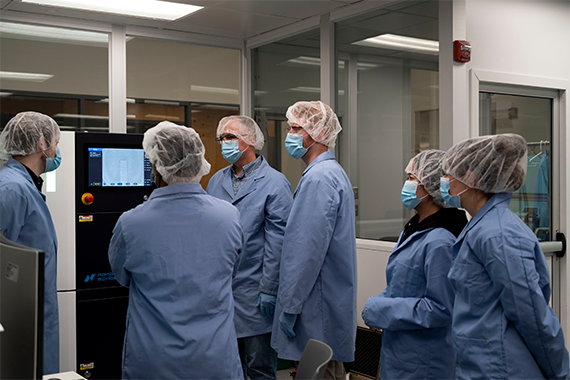
Mizzou Engineering secures Nanoscribe Quantum X Shape 3D printer
Purchased with nearly $1 million from a U.S. Army Engineer Research and Development Center (ERDC) grant, the Quantum X shape from Nanoscribe, a Bico company, uses a process called two-photon lithography to rapidly cure a liquid resin, making it ideal for rapid prototyping and wafer-scale processing of any 3D shape. It’s the fastest and most accurate 3D printer for high-end microfabrication tasks on the market. Mizzou Engineering is one of just a few U.S. organizations to have the printer in and one of fewer than 100 around the world.
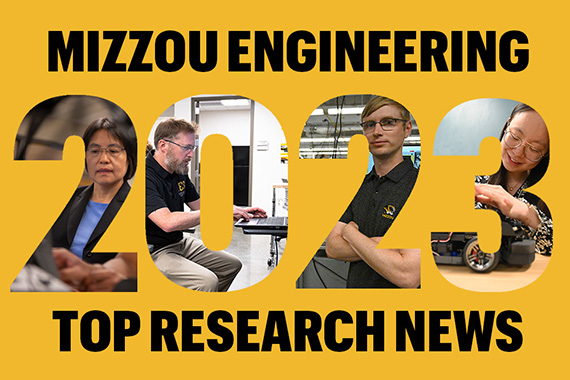
Mizzou Engineers advanced energy, AI, materials, transportation, health in 2023
This past year, Mizzou Engineers worked on significant solutions to society’s most-pressing challenges. They advanced nuclear power. They studied ways to turn leftover bread crust into plastics that will degrade naturally in the environment. They made artificial intelligence explain itself. They invented new materials, investigated self-driving trucks and came up with an innovative system to optimize blood supplies.
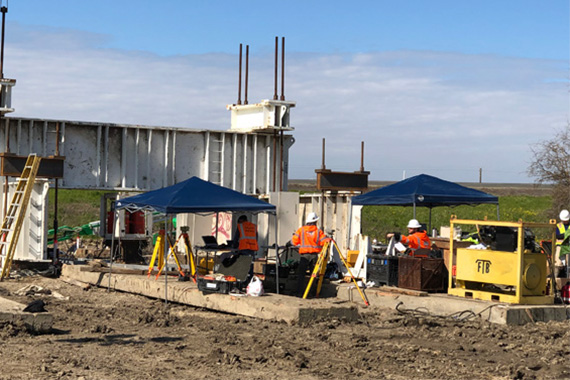
Mizzou Engineer studies how construction methods impact drilled shaft foundations
A Mizzou Engineer has received funding from the Transportation Research Board — a division of the National Academy of Sciences, Engineering and Medicine —to study how construction methods may impact the foundations of bridges and other transportation structures.
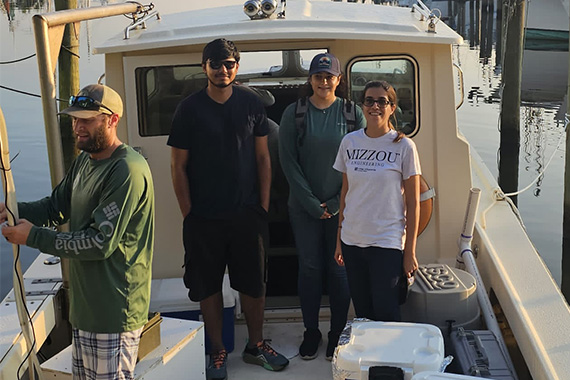
Mizzou Engineer helps study effects of hurricanes on water, sediment quality
With heavy rainfall and strong winds, hurricanes can alter the make-up of ecosystems, pushing salt water into freshwater bodies and disturbing sediment on the ocean floor. While this impacts water quality and disrupts aquatic life, the effects of hurricanes on water and sediment quality aren’t well understood. Enter Maryam Salehi, an assistant professor of civil and environmental engineering at Mizzou. Salehi is an expert in the transport and fate of contaminants, including microplastic pollution.

Interdisciplinary team develops fast, reliable model to predict how seeds move
Playing an essential foundational role in an ecosystem, plants contribute to the well-being of human health by helping create resources like food and medicine. Therefore, to better understand how plants can maintain resiliency in the face of challenges like climate change, a team of researchers at the University of Missouri and Michigan State University recently collaborated to develop an innovative mathematical model that can provide fast and reliable predictions of how far wind can carry a plant’s seeds.